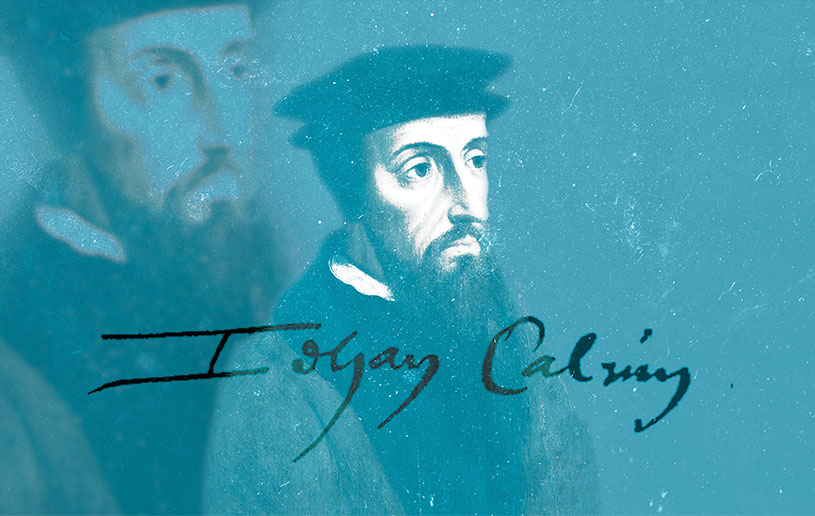
A man of great faith who encourages me to pursue the glory of God through difficult seasons is French pastor and theologian John Calvin.
John Calvin was born in 1509 in Noyon, France. He was only eight years old when Martin Luther posted the 95 Theses on the church door in Wittenberg in 1517. At age 14 he entered university to study Latin and philosophy, but his father later withdrew him to pursue a degree in law. By 1533, Calvin departed from his Catholic beginnings, converted to faith in Christ, and embraced the teachings of the Protestant Reformation. Calvin said of his conversion, “God, by a sudden conversion subdued and brought my mind to a teachable frame.... Having thus received some taste and knowledge of true godliness, I was immediately inflamed with [an] intense desire to make progress.”1
The Reformation in France, like in Germany, had created tension between the Catholic church and Protestant reformers. In 1535, Calvin was forced to leave Paris when persecution broke out against Protestant Christians. He fled to Basel, Switzerland where he spent two years and published the first edition of his magnum opus, The Institutes of the Christian Religion. Initially, Calvin had no desire to become a pastor and wanted to study as a scholar in Strasbourg. However, on his way to Strasbourg, he had to take a detour through Geneva where reformer William Farel sought him out and convinced him to stay and help reform the city.
Due to theological conflicts in Geneva, he left and went to Strasbourg for a few years, where he met and married Idelette de Bure, a widow with two children. They had a happy marriage but suffered the loss of their son, Jaques, two weeks after his birth. Calvin then lost Idelette in 1549, after a lengthy illness. Calvin’s passion for the glory of God and his trust in God’s providence amid suffering speak pastoral words of wisdom to our world today.
Innumerable are the evils that beset human life; innumerable too, the deaths that threaten it. We need not go beyond ourselves: since our body is the receptacle of a thousand diseases... Yet, when that light of divine providence has once shone upon a godly man, he is then relieved and set free not only from the extreme anxiety and fear that were pressing him before, but from every care. For as he justly dreads fortune, so he fearlessly dares commit himself to God. His solace, I say, is to know that his Heavenly Father so holds all things in his power, so rules by his authority and will, so governs by his wisdom, that nothing can befall except he determine it.2
Calvin was a man of faithful constancy who endeavoured to magnify the glory of God and rest in His sovereignty, no matter the circumstance. As we pray, let us fearlessly commit ourselves to God and take comfort that our time is in His hand.
But I trust in you, O LORD; I say, “You are my God.” My times are in your hand. (Psalm 31:14–15 ESV)
Bill Gemaehlich is the EVP/COO operations at Insight for Living Ministries
1 Griffin, Emilie. 2006. John Calvin: Selections from His Writings. New York, NY: HarperOne.
2 John Calvin, Institutes of the Christian Religion, ed. John T. McNeill, trans. Ford Lewis Battles (Louisville: Westminster John Knox Press, 2006)

